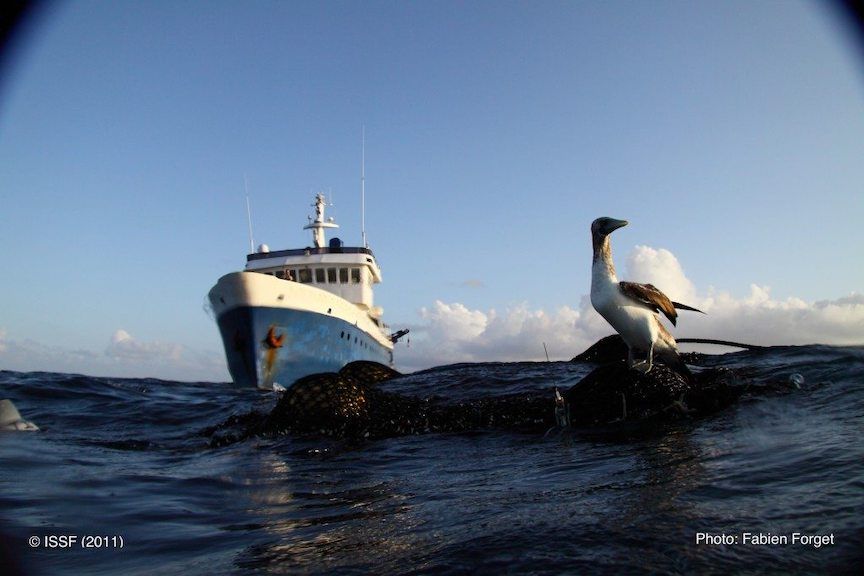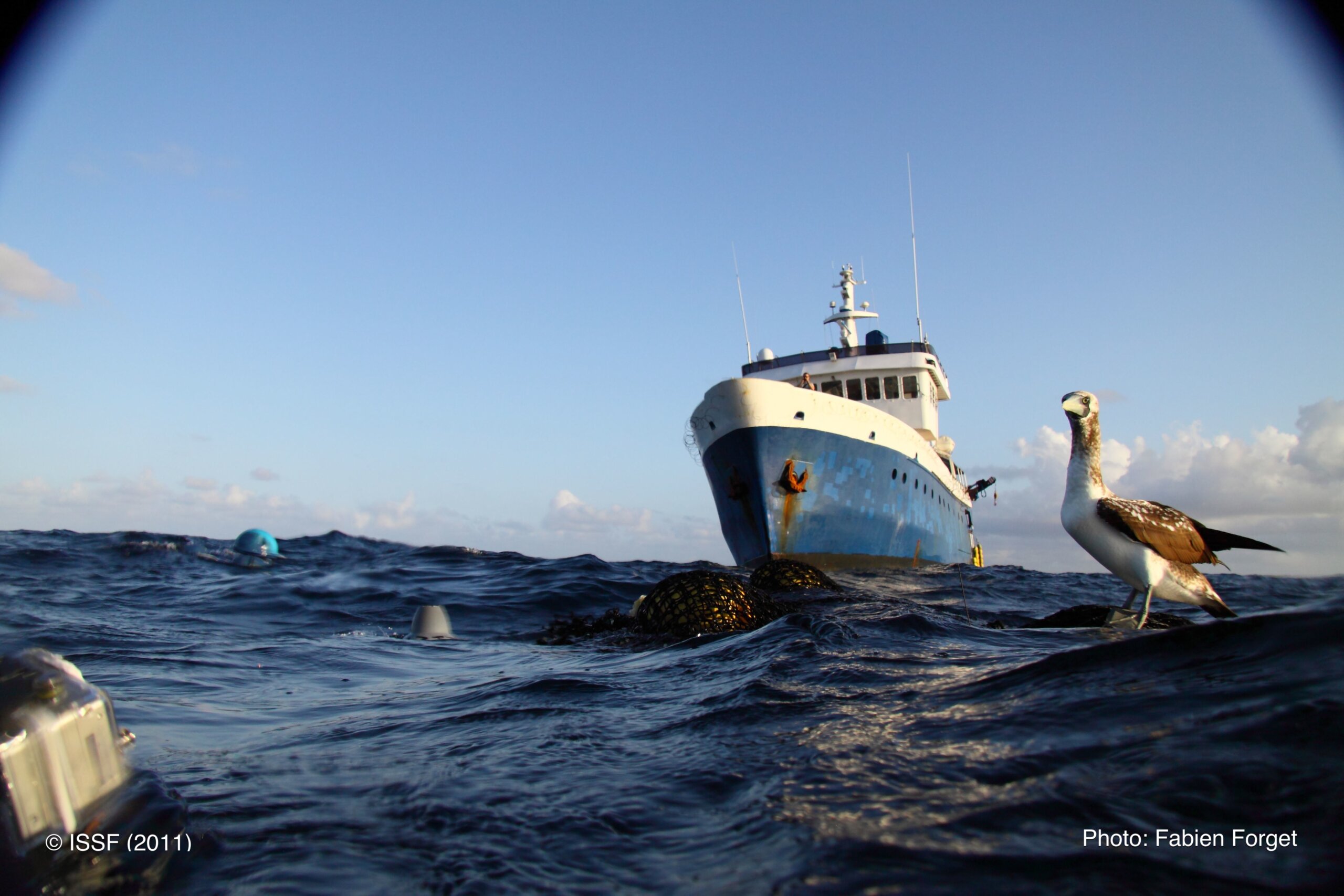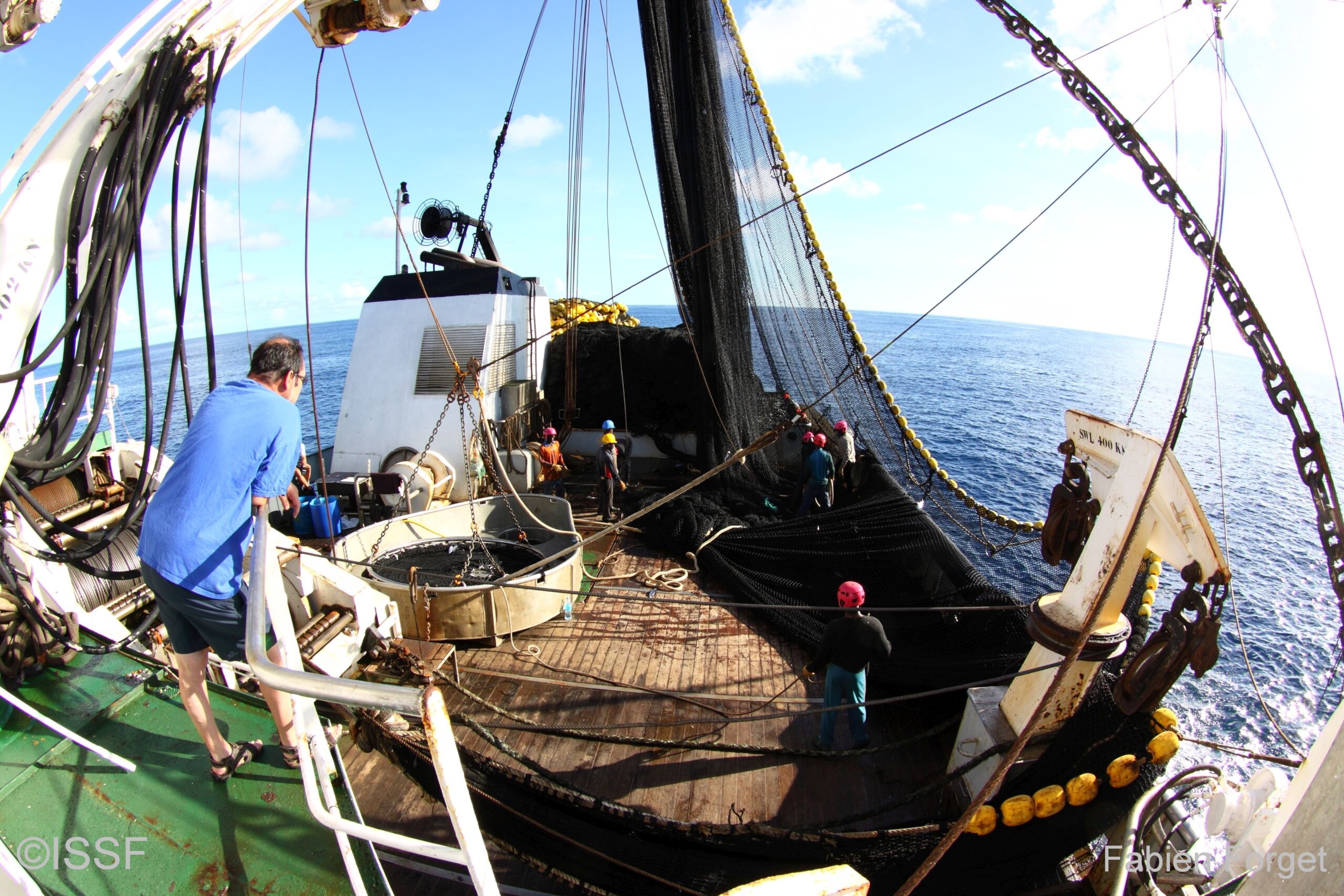
Some Hits, Some Misses for Indian Ocean Tuna Resources at IOTC Annual Meeting
The recent Indian Ocean Tuna Commission (IOTC) meeting marked a return to a collaborative spirit amongst members of the Regional Fisheries Management Organization (RFMO). ISSF welcomes this renewed cooperation and consultation between members because it is essential for the effective functioning of tuna RFMOs. It must now remain the norm for IOTC.
However, the Commission once again did not address some priority topics. Specifically, IOTC failed to halt the decline of overfished yellowfin tuna, further strengthen fish aggregating device (FAD) management, and adopt stronger conservation measures for skipjack tuna and sharks. We applaud progress in other important areas, nonetheless. The IOTC adopted electronic monitoring standards, updated its compliance processes, agreed on bigeye catch limits, and modernized seabird and cetacean measures — all of which are critical for the sustainable management of Indian Ocean tuna fisheries and ecosystems.
Here is a review of the IOTC meeting outcomes against ISSF priorities as outlined in our 2023 position statement.
Electronic Monitoring and Reporting & Observer Coverage
ISSF is especially pleased to see progress on electronic monitoring (EM) at this year’s IOTC meeting. We applaud IOTC as the first RFMO to adopt EM Program and Data Standards, which are based on the recommendations of the Scientific Committee and EM Working Group.
The Commission did not also increase its observer coverage requirements as we had urged, unfortunately. But EM standards can help achieve the higher coverage levels that are critical to effective fisheries management; compliance monitoring; and independent verification of catch, effort, and non-target species interactions.
Compliance Processes
Ahead of the annual meeting, ISSF called on the IOTC Compliance Committee to address member states’ non-compliance and to require the submission of action plans to address identified non-compliance. ISSF is therefore pleased that IOTC adopted amendments to improve its compliance processes.
The updates include a more structured procedure for compliance assessment and follow-up through the IOTC Compliance Committee; establishing compliance status categories and a framework for possible responses to non-compliance; and grading non-compliances by level of significance. These new processes are consistent with the best practices in the Toolkit to Evaluate and Improve RFMO Compliance Process, developed through an initiative of the Pew Charitable Trusts and ISSF.
Tuna Stock Conservation
ISSF is pleased that the Commission adopted a catch limit for bigeye tuna by IOTC parties — one that is aligned with the limits set by its Management Procedure.
But we are dismayed that IOTC once again did not adopt critically needed improvements to measures for yellowfin tuna, which is overfished and subject to overfishing, and to reduce catches of skipjack in line with limits set by a harvest control rule (HCR).
Total tropical tuna catch in the Indian Ocean has increased 26-30% since 2014-2015, despite a yellowfin rebuilding plan and a skipjack annual quota — a situation that exposes the ineffectiveness of current measures. ISSF and its stakeholders therefore urged managers to reduce yellowfin catches by at least 22 percent, relative to the 2020 level, following the latest IOTC Scientific Committee (SC) management advice and to ensure that skipjack catches do not exceed the limit set in the related HCR. Yet no action was taken.
IOTC cannot continue this stasis. It must develop effective and science-based management measures for these Indian Ocean tuna stocks.
FAD Management
Alongside our stakeholders, ISSF issued a robust call for action on improved FAD management in Indian Ocean fisheries. We urged the Commission to require its scientists to provide advice on FAD management options, including the efficacy of FAD closures, and expected reductions of juvenile and total catch of tropical tunas. The Commission did task the Scientific Committee as such, and ISSF looks forward to their advice and to working with all IOTC parties to ensure this guidance is considered in future management actions.
IOTC also expanded FAD data reporting requirements. We are pleased that the Commission will now allow reported FAD position data for scientific use, rather than compliance use only.
Unfortunately, other upgrades to IOTC’s FAD management resolution were not adopted, such as clearer rules for FAD activation and the deactivation of FAD buoys. And, moreover, objections to the current FAD management resolution will delay the adoption of FAD marking requirements and the much-needed transition to biodegradable FADs.
Bycatch Mitigation and Shark Protections
Needed improvements for the protection of non-target species like sharks, seabirds, sea turtles, and cetaceans in Indian Ocean tuna fisheries had mixed results at this year’s meeting. The good news is that IOTC adopted greater protections for cetaceans and amended its outdated seabird conservation resolution to include best-practice mitigation techniques. ISSF also requested that IOTC require that shark fins be naturally attached for all landings and to adopt measures to limit fishing mortality on sharks based on SC recommendations. These appeals went unanswered, unfortunately.
The lack of action for yellowfin and skipjack tuna, sharks, increased observer coverage, and improvements in FAD management are discouraging outcomes of this year’s IOTC meeting. But ISSF congratulates IOTC on important progress made otherwise for the management of Indian Ocean tuna fisheries. Moreover, the return of positive engagement and collaboration amongst IOTC parties is encouraging. We hope this spirit will result in a renewed focus among parties to work together toward the long-term sustainable use of Indian Ocean tuna fisheries.


